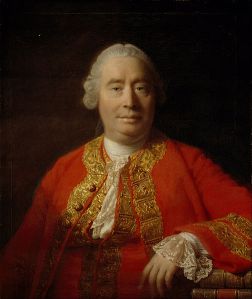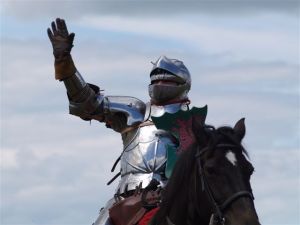Pacifying the past: British historical culture, 1745-1776
British History in the Long 18th Century Seminar
Paul Davis (Princeton)
25 January 2012
Pacifying the past: British historical culture, 1745-1776
This is a guest post by Paul McMenemy, one of IHR Digital’s winter interns from the University of Leicester.

David Hume (1711-1776)
The eighteenth century is often seen as the era which witnessed the birth of modern history-writing, certainly in Britain. What has not necessarily been made clear is why this should be the case. In the past, the rise of British history-writing has often been seen simply as a by-product of Enlightenment. This attitude has no doubt been encouraged by the fact that its first great practitioner (Clarendon excepted, for reasons we shall see below) was David Hume. However, while a great deal of effort has been expended on trying to understand why Hume came to his conclusions in the field of philosophy – the influence of his environment, of previous thinkers, and so on – there has been comparatively little research into the motivations behind his History of England, and explaining why it differs from previous historical works.
Paul Davies suggests that Hume and those who came after him wrote in an attempt to neutralise the still-strong passions of the recent past. As Davies points out, Hume did not begin writing his History with what eventually became its first volume, dealing with the classical and medieval periods, but with those dealing with the accession of James VI of Scotland to the throne of England in 1603, continuing until the Glorious Revolution. Why he did so, and why the period fascinated other writers of the time, Davies ascribes to fears of a Stuart return, reignited by the Jacobite rebellion of 1745. Hume effectively neutralises the martyrology surrounding Charles I in Tory circles, not by demonising him, as Catherine Macaulay was to do, but by portraying him as a noble but flawed man overtaken by circumstances beyond his control. This is not so very different from how he is portrayed by Edward Hyde, Earl of Clarendon, whom many historians would now see as preceding Hume as the first recognisably modern British historian; however, as Davies points out, Clarendon’s reputation as a politician served to obscure his reputation as a historian during the eighteenth century – bearing out Davies’s point concerning the height of feeling surrounding the period – and the political capital made out of his History’s first publication in 1702, coinciding with the Tory revival at the start of the reign of Queen Anne, also tended to blind Whig readers to its merits.
By blaming the Stuarts’ politics more than their characters, Hume (and William Robertson – probably the foremost historian of the era – who follows Hume in his treatment of the Stuarts) removes them from the realm of contemporary politics, and transforms what Davies points out was not yet history in the eighteenth century mind into a thing of the past. What Hume also attempts to do – which Catherine Macaulay, for instance, explicitly does not – is change the reading of history from a pastime valued primarily for its morally edifying effects, to a morally neutral pursuit valuable purely in terms of knowledge gained. Until the mid-twentieth century, most historians and readers of history followed Macaulay rather than Hume in this matter.
The romanticisation of the early Stuart period which enjoyed a vogue during the later eighteenth century, as evidenced by the fashion for “van Dyck dress” on stage and in paintings by Reynolds, Zoffany, West, etc. – a discussion of which concludes Davies’s talk – can also be seen as a rendering harmless of the once-toxic past, and perhaps as a logical extension of the humanising tendency of Enlightenment historians. As Davies says, however, this was not felt to be the case in all quarters, and the backlash led by Catherine Macaulay’s vehemently anti-Stuart writing – and the republican school of American history which Davies argues she inspired – shows that symbols of the Stuart past still retained at least some of their potency. In discussing this Davies lays bare a paradox: the anti-Stuart backlash which led Garrick to de-romanticise his Shakespearean costume, and the fashionable painters to de-romanticise their historical paintings, produced the opposite effect in historians of the republican school, albeit their romanticisation now applied to the Parliamentarians, rather than the Royalists.
To listen to this podcast click here.
Read Full Post »




 Abstract: This paper will present an overview, concluding that England has two leagues of cities: a largely medieval league of what are now small cathedral towns; and a post-Victorian league which now includes more or less all the great ‘towns’. The paper explains how this came about, and asks what it means for our understanding of the English city.
Abstract: This paper will present an overview, concluding that England has two leagues of cities: a largely medieval league of what are now small cathedral towns; and a post-Victorian league which now includes more or less all the great ‘towns’. The paper explains how this came about, and asks what it means for our understanding of the English city.


